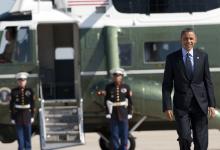Summit of the Americas
From the fall of the Berlin Wall in November 1989 to the dissolution of the Soviet Union in December 1991, the Cold War ended. But U.S. policymakers apparently still haven’t gotten the news.
This meeting of the Summit of the Americas in Cartagena, Colombia, last weekend ended without the usual official declaration because U.S. policy refuses to include Cuba, while a broad range of other governments in the Americas supports an invitation. The final vote was 32-2 for Cuba’s inclusion in future meetings, with only the U.S. and Canada opposed.
Reuters noted: “U.S. insistence that Havana undertake democratic reforms before returning to the hemispheric family led to a clash with a united front of leftist and conservative governments that see Washington's policy toward Cuba as a relic of the Cold War.”
It’s long past time for the U.S. to realize that the Cold War is over, that Cuba exists, and that inclusion will foster change faster than exclusion. Even the Vatican realizes that, as Pope Benedict’s recent trip to Cuba demonstrated.

Whatever President Obama does at the upcoming Summit of the Americas in Cartagena, Colombia this weekend may not be front-page news in the U.S—but for many Colombians trying to make an honest living in their homeland, it could just be Obama's "Mission Accomplished" banner moment.
President George W. Bush's May 2003 speech in front of a giant "Mission Accomplished" sign was, to put it mildly, a premature declaration of triumph in the U.S. war with Iraq, an enterprise that was a bad idea in the first place. In Cartagena this weekend, word is that Obama may declare that, after one year of a promised four-year plan, Colombia has met its commitments to crack down on offenses against Colombian workers' rights and lives.